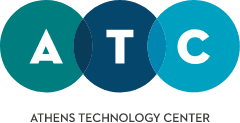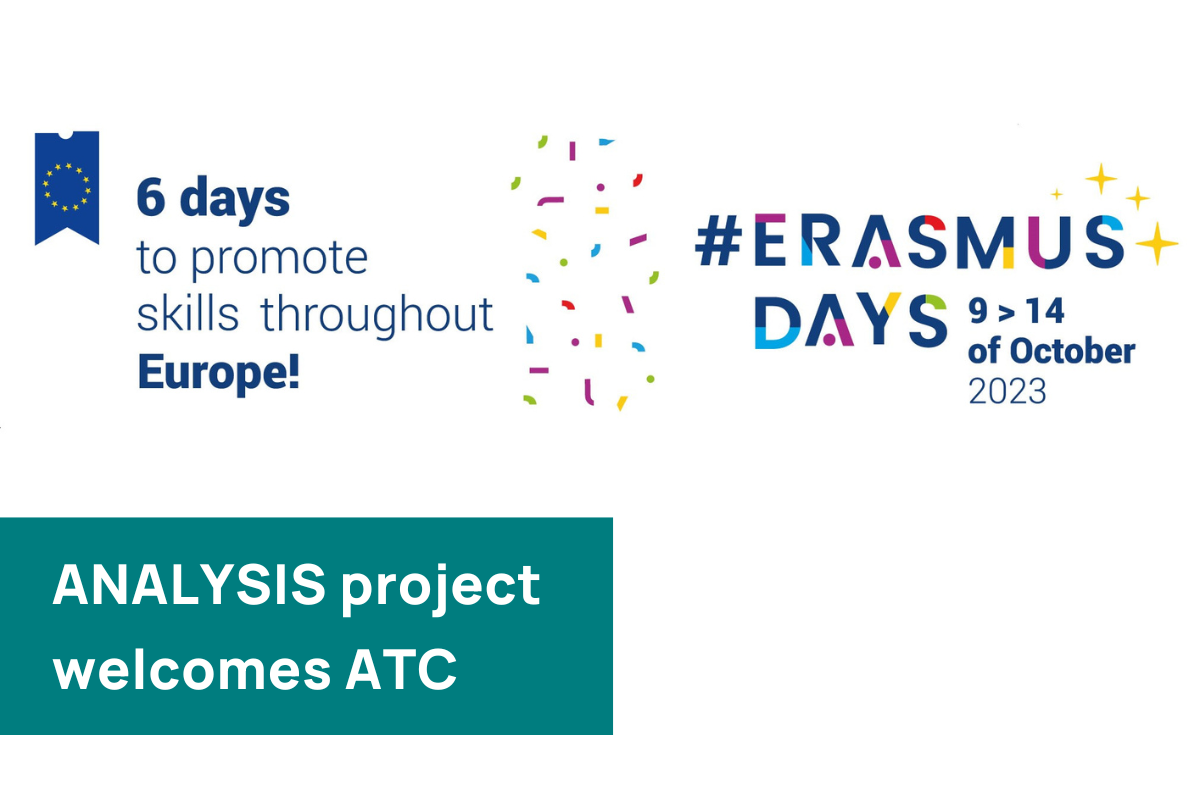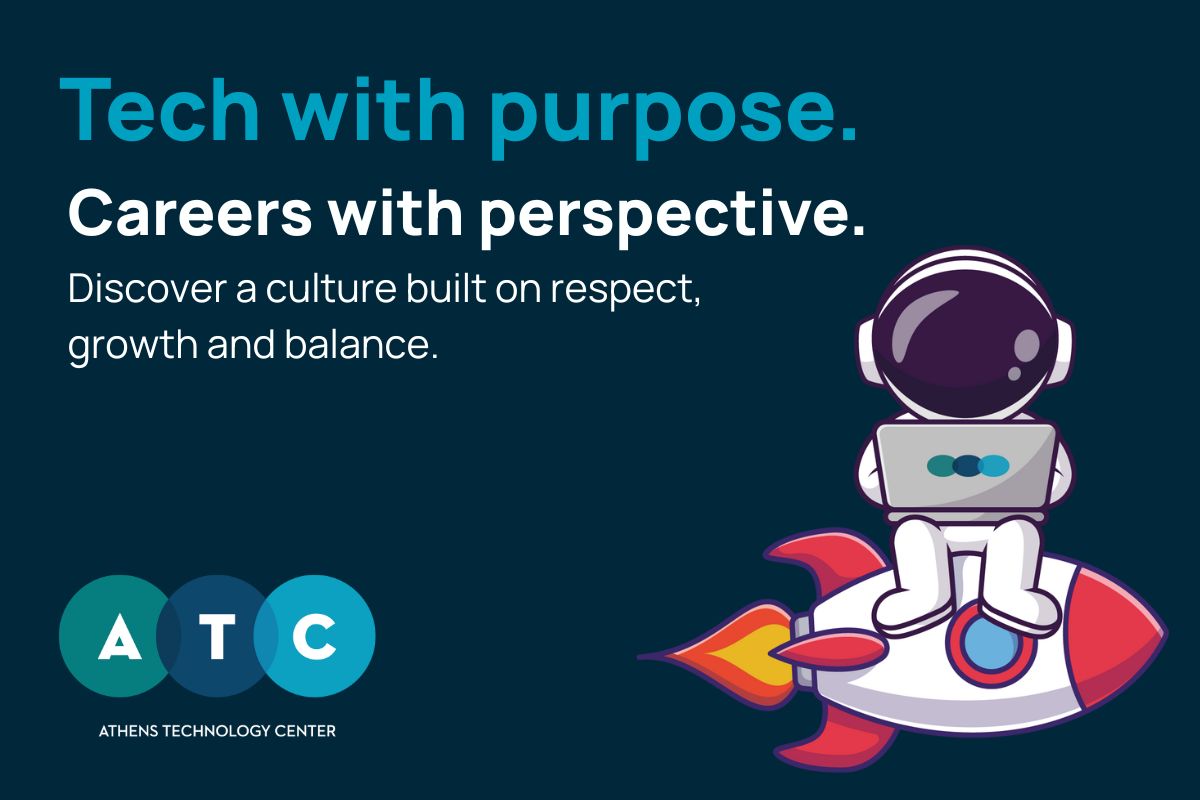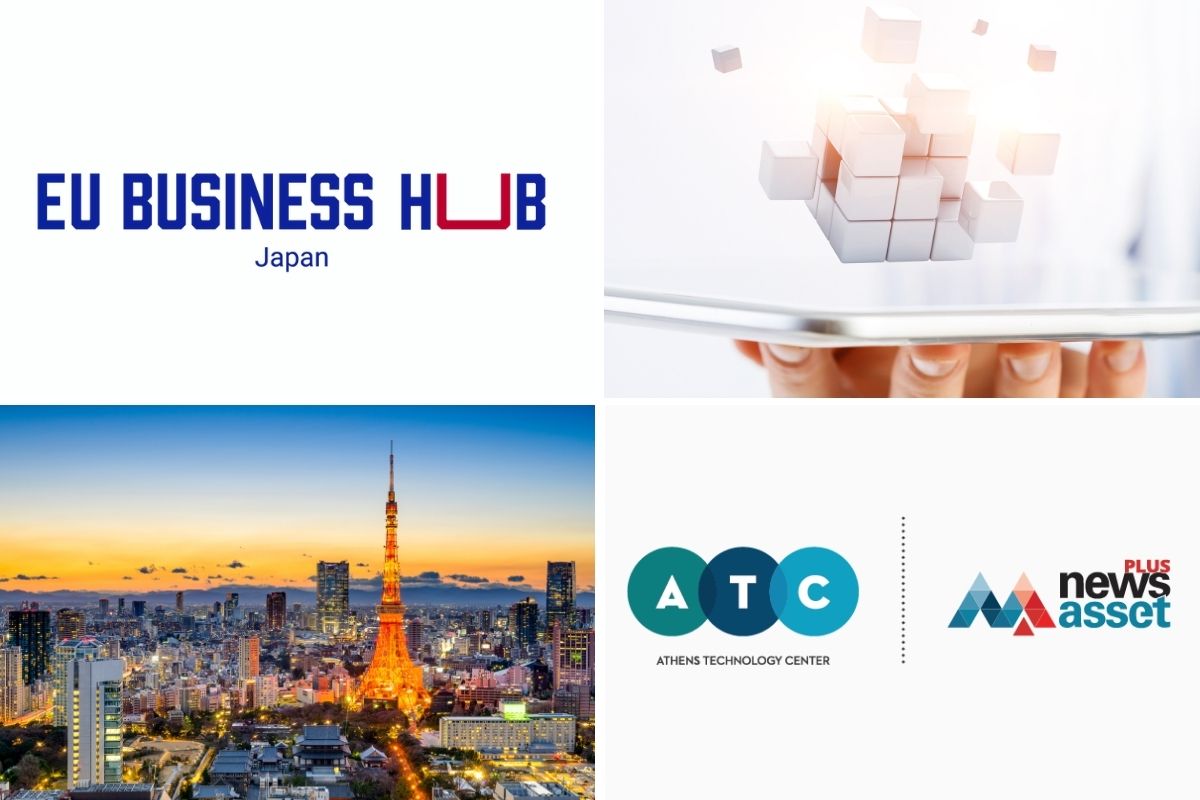On October 12th, the Department of Communication and Media of the National and Kapodistrian University of Athens introduced ANALYSIS project to students, researchers and professionals from the fields of communication, journalism and technology. ATC was an honorable guest!
The aim of the event was to promote and disseminate the European Erasmus+ project entitled “ANALYSIS: trAiNing mediA professionals on appLYing advanced, high-impact digital technologieS to combat dISinformation“.
The ANALYSIS project is a collaborative consortium that will provide advanced technology training to media professionals to counter disinformation in Greece, Portugal and Austria.
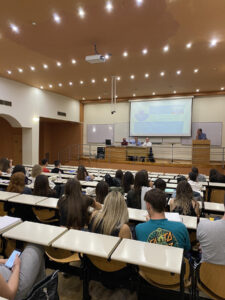
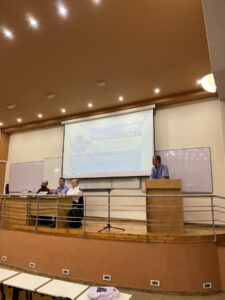
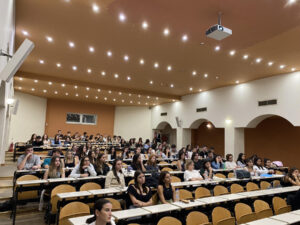
The event was moderated by Konstantinos Mourlas, associate professor at the Department of Communication and Mass Media. Key topics of the discussion were current and future media challenges, tools and journalistic practices to tackle disinformation.
Within this spectrum, ATC was invited to participate in a discussion panel, due to the company’s extended experience in developing fact-checking tools, such as Truly Media and TruthNest.
In fact, speakers of the event were Emilios Perdikaris, President of the Athens-Macedonian News Agency (ANA-MPA), Christos Gavalas, Fact-Checking Manager at Athens Technology Center and Panagiotis Ganas, Social Media Marketeer at Liquid Media.
Mr. Perdikaris referred to the correct way of utilizing technological solutions in journalism, pointing out that it is necessary to have clear regulations, appropriate tools and specially trained journalists.
At the same time, Mr. Gavalas, referring to the artificial intelligence technologies that are increasingly adopted by news agencies, highlighted the “need that will become more and more evident around the creation of an LLM specifically for journalists world” with the crucial contribution of universities, so that journalists are not “hostage” to the results produced by big tech models such as OpenAI “no matter how well trained they are”.
He also focused on Athens Technology Center’s participation in the European Digital Media Observatory (EDMO) and its branch in Greece, Cyprus and Malta (MedDMO), which provide fact-checking services through approved organizations and technological tools for verifying news.
In the context of a discussion on the incorporation of fact-checking practices by Greek journalistic organizations, Mr. Ganas stressed both the delay in adopting such practices and the absence of professional fact-checkers. Mr. Perdikaris also supported the institutionalization of the profession of fact-checker, stressing that the process of cross-checking should transition to the new era. He also highlighted the difficulty of tackling fake news in the social media space, as it becomes impossible to access and control data on platforms such as TikTok.
